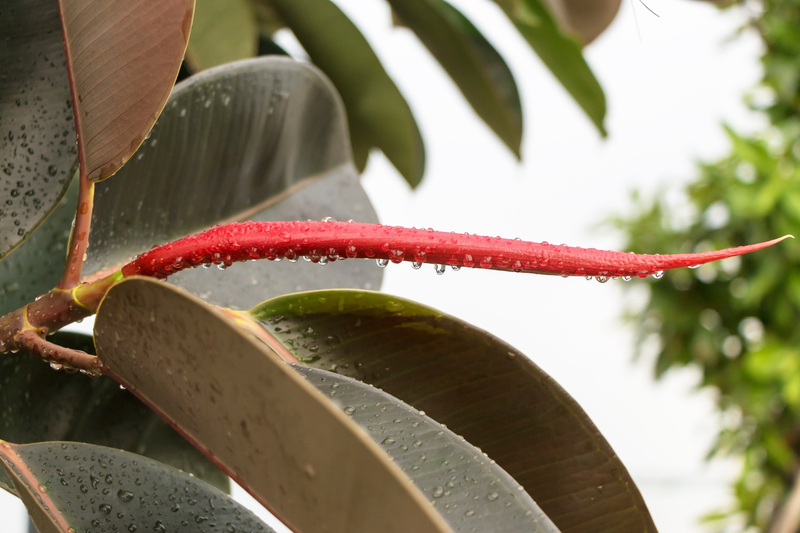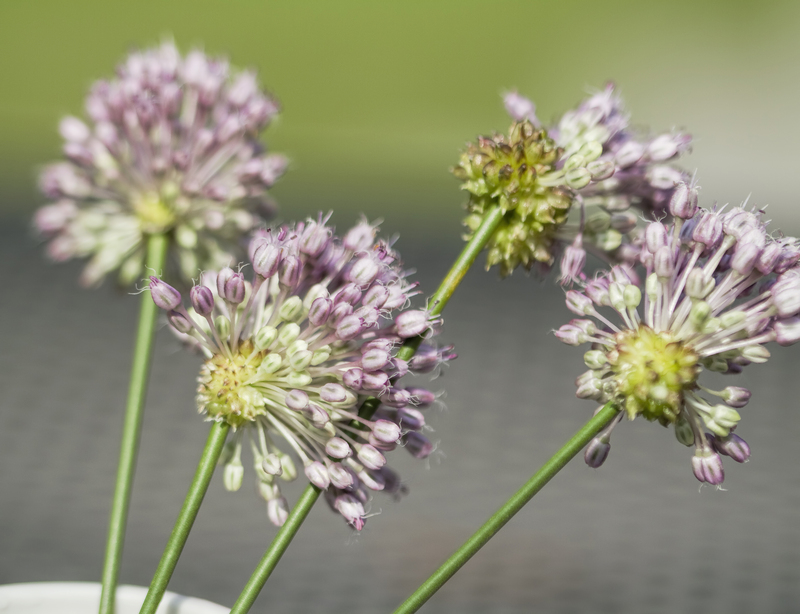Sow Success: 3 Tips to Keep Your Garden Weed-Free
Posted on 30/05/2025
Sow Success: 3 Tips to Keep Your Garden Weed-Free
Every passionate gardener dreams of lush, vibrant plants without the persistent invasion of weeds. Achieving a weed-free garden is not only possible but essential for sowing lasting success. Weeds compete fiercely for nutrients, sunlight, and water, stunting the growth of your valuable plants and causing unsightly chaos in your outdoor space. If you're ready to transform your garden into a thriving, weed-free haven, you're in the right place. This comprehensive guide reveals three powerful, proven tips designed to help you master weed prevention and grow a flourishing garden.
Why Keeping Your Garden Weed-Free Matters
Controlling weeds is about more than just keeping your flower beds or vegetable patches looking neat. Weeds rapidly multiply and compete directly with your plants for essentials like water, nutrients, and sunlight. Left unchecked, they can choke out your favorite flowers, reduce vegetable yields, and encourage pests or diseases. With a few effective strategies, you can sow the seeds of success and enjoy a healthier, more productive garden.
The Hidden Costs of Weeds
- Reduced yields: Weeds can absorb up to 50% of available water and nutrients, starving your plants.
- Increased pests and diseases: Many weeds harbor harmful insects or fungi that can spread to your garden plants.
- More work in the future: Allowing weeds to set seed ensures a worse infestation next season.
- Compromised plant health: Weeds can physically crowd out valued plants, limiting their growth or even killing them.

Tip 1: Start with Clean, Quality Soil
The foundation of a weed-free garden begins with its soil. Soil quality matters--not just for your plants, but for controlling weed growth from the ground up. Many weed seeds lie dormant in garden soil, waiting for the right moment to germinate. Without attention and preparation, even the best-planted beds can turn into weed jungles.
How to Prepare Your Garden Soil for Success
- Remove Existing Weeds Thoroughly: Before sowing any seeds or planting young plants, clear the area of existing weeds, roots, and all. Use a hoe or hand tool to get beneath the soil surface and remove as much as possible.
- Solarize the Soil: For larger beds or persistent weed problems, try solarization. Cover moist soil with clear plastic for 4-6 weeks during the hottest part of summer. The sun's heat will kill many weed seeds, insect larvae, and pathogens.
- Screen or Sift Your Soil: When creating new garden beds, run the soil through a screen or fine rake to remove roots, weed debris, and stones. This reduces opportunities for new weeds to gain a foothold.
- Use High-Quality Compost: Always use well-composted organic matter, as unfinished compost can contain viable weed seeds. Finished compost is rich in nutrients and helps suppress weeds naturally.
Healthy, clean soil is the first defense in your battle for a weed-free garden. It gives your chosen plants a head start, making it harder for invasive weeds to establish.
Pro Gardeners' Soil Tips
- Test Your Soil: Regularly test your soil for pH, nutrient levels, and texture. Well-balanced soil promotes vigorous plant growth, which naturally shades out weeds.
- Turn Over Soil Early: Tilling in early spring encourages weed seeds near the surface to sprout. Removing these seedlings before planting crops is a powerful pre-plant strategy.
Tip 2: Use Mulch to Block and Smother Weeds
Mulching is often hailed as the ultimate weed control method. A thick layer of mulch suppresses weed seed germination by blocking light and smothering young shoots before they break the surface. As a bonus, mulch improves soil moisture retention, reduces temperature extremes, and breaks down to nourish your garden.
The Best Types of Garden Mulch for Weed Prevention
- Organic Mulch: Materials like bark chips, shredded leaves, pine needles, straw, or finished compost enrich the soil as they break down. A layer 2-4 inches thick will block most weeds.
- Inorganic Mulch: Landscape fabrics, black plastic, or gravel are long-lasting and especially useful in permanent paths or around perennials. Landscape fabrics allow water through yet block weed shoots.
How to Apply Mulch for Maximum Weed Control
- Remove existing weeds before applying any mulch--mulch alone won't eliminate established intruders.
- Ensure the soil is moist before spreading mulch for optimal plant health.
- Spread mulch evenly to a depth of 2-4 inches, keeping a small gap around plant stems to prevent rot.
- Replenish mulch regularly, especially after heavy rain, wind, or as organic materials decompose over time.
Did you know? Mulching not only creates a tidy, weed-free garden, but also attracts beneficial earthworms and micro-organisms that naturally improve soil health.
Advanced Mulching Techniques
- Layering Newspaper or Cardboard: Before adding organic mulch, lay down a thick layer of newspaper or cardboard. This smothers even the toughest weeds and adds eco-friendly structure to your garden beds.
- Living Mulch: Consider using low-growing ground covers between plants. These 'living mulches' shade soil, crowd out weeds, and add biodiversity.
Tip 3: Stay Vigilant with Regular Maintenance
Even the best-prepared and mulched gardens need ongoing attention to stay weed-free. Consistent maintenance keeps weeds from becoming established or spreading. Remember, it's always easier to control a few young weeds than hundreds of mature ones!
Habits for a Weed-Free Garden All Season Long
- Spot-Weed Frequently: Set aside a few minutes every week to walk your garden and hand-pull young weeds. These are easiest to remove when small and the soil is moist.
- Hoe or Cultivate: Use a sharp hoe or cultivator to gently disturb soil and cut weeds off at the root. Aim to keep soil disruption shallow to avoid bringing more seeds to the surface.
- Deadhead and Remove Seed Heads: If you see any weeds going to seed, remove them immediately--one weed can produce thousands of seeds for next year!
- Edge Beds and Paths: Neatly edge gardens with a spade or edging tool to prevent encroachment from lawns or wild areas.
- Install Barriers: Use landscape edging or buried boards to stop grass and perennial weeds from creeping into garden beds.
Pro Tip: Keep a small weeding tool or garden fork handy whenever you're outside. Dealing with weeds as you see them prevents a chore from turning into a crisis.
Additional Preventative Measures
- Dense Planting: Sow plants closer together (as appropriate for each species) to shade soil quickly, starving weeds of light.
- Smart Watering: Water only at the base of your desired plants. Avoid watering empty spaces, which encourages weed seeds to sprout.
- Use Cover Crops: In vegetable gardens, plant cover crops on bare ground in off-seasons to crowd out winter or early spring weeds.
Common Garden Weeds and How to Deal With Them
Effective weed management involves knowing your enemy. Some common invaders require special strategies to fully eradicate them from your garden beds.
Annual Weeds
- Examples: Crabgrass, pigweed, chickweed, lamb's quarters
- Strategy: Remove while young, before they set seed. Mulch heavily, and use a pre-emergent weed barrier if necessary.
Perennial Weeds
- Examples: Dandelions, bindweed, quackgrass, ground ivy
- Strategy: Dig out roots completely. Persistent hand-pulling and targeted herbicide (if needed) may be required for severe infestations. Mulch and barriers can slow regrowth.
Organic vs. Chemical Weed Control
While organic gardeners rely on hand-weeding, mulch, and barriers, some gardeners do use chemical herbicides for especially tough or invasive weeds. If you choose this route, always read labels carefully, use precision application, and avoid spraying near edible plants, children, or pets.
Organic weed control methods not only protect garden health but are safer for pollinators, birds, and the soil microbiome. Many organic strategies can be just as effective as chemicals with persistence and planning.

Frequently Asked Questions About Weed-Free Gardens
How often should I weed my garden?
Regular attention--ideally, once a week--is the best way to keep your garden weed-free. Short, frequent sessions are easier and more effective than long, infrequent efforts.
What is the best mulch for weed prevention?
Organic mulches like shredded bark, straw, or composted leaves are excellent for suppressing weeds and building soil. For paths or severe infestations, landscape fabric or black plastic offers intense weed control but does not improve the soil.
Are there plants that suppress weeds naturally?
Certain ground covers and dense perennials act as 'living mulch', shading the soil and reducing weed seed germination. Try creeping thyme, sweet woodruff, or sedum between larger plants for attractive, weed-resistant beds.
Can I ever have a completely weed-free garden?
While "zero weeds" is almost impossible--wind, birds, and foot traffic always bring in some seeds--following these three tips can reduce weeds to a manageable minimum, keeping your garden healthy, beautiful, and productive.
Conclusion: Sow Success with a Weed-Free Garden
Achieving a weed-free garden, or as close to one as nature allows, is a continuous process that rewards you with healthier plants, higher yields, and delightful outdoor beauty. By starting with clean, quality soil, applying mulch to protect your hard work, and staying proactive with regular maintenance, you'll create an environment where weeds struggle to gain a foothold.
Embrace these three proven tips as your blueprint for garden success. The investment you make now pays off all season--your flowers and vegetables will thank you for it! Happy gardening and may you always sow success in your weed-free sanctuary.
Latest Posts
Unleash creativity with a garden designed for young minds
Explore 9 Must-Have Ground Covers for UK Gardeners
Step-by-Step to Your Own Fresh Herb Paradise

